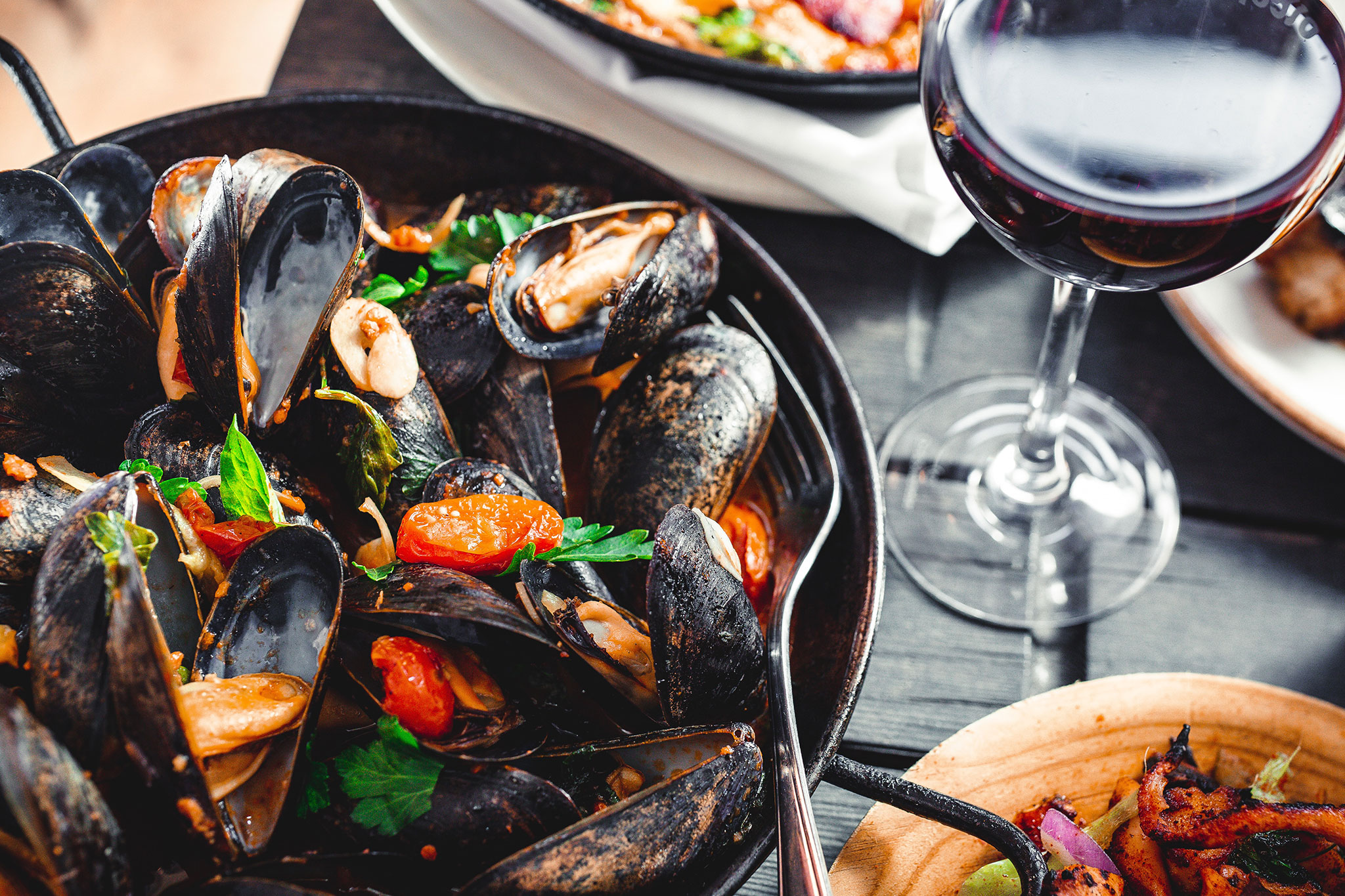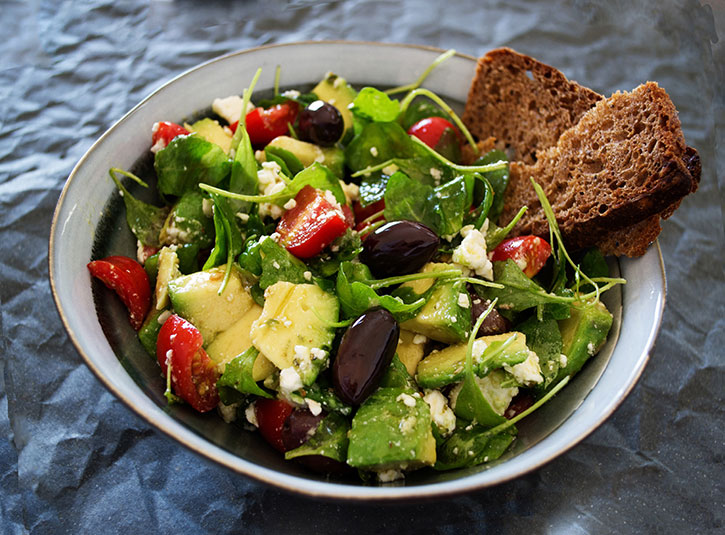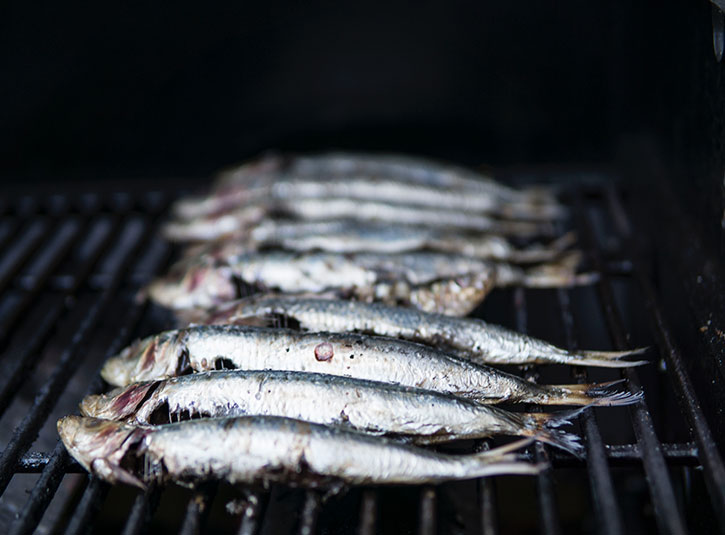
Tips & tricks to following the Mediterranean Diet
posted on
Updated January 2020.
Back in the 1950s, an American scientist noticed that people in the poorest areas and smallest towns of southern Italy were generally healthier than the richest people in New York at the time. This is when the nutritional value of the Mediterranean diet was discovered—and our very first “Food Pyramid” was created.
But we didn’t quite get it right.
Our highly processed and refined version of “the world’s healthiest diet” still causes all kinds of health issues on both our bodies and the planet after all this time. Many of us aren’t even following the typical “food pyramid” that we grew up on, instead, we’re eating fast food on-the-go whenever we have a minute to spare.
In this article, we’ll list the top 10 reasons why switching to the original Mediterranean diet could be right for your body—and ideas of what to eat (and what to avoid).
Top 10 benefits of the Mediterranean diet:
- Low in sugar and processed foods (better control of glucose levels in blood)
- Helps with healthy, sustainable weight loss
- Better for your heart health
- Reduces risk of inflammation
- Helps fight cancer with its omega fatty acids, fiber and antioxidants
- Helps stave off and reduces effects of diabetes
- Maximizes cognitive health and reduces risk of Alzheimer’s disease
- Improves your mood and helps with depression
- Helps destress and relax
- Slow, mindful eating better for digestive health
Sounds great, right? No wonder it loosely inspired over half a century of meal plans and diets. So what do we need to eat in order to reap these benefits?
First off, if you’ve ever been to the Mediterranean—especially Greece, Crete or Italy—think back to what you ate. Hint: it’s very similar to what ancient Greeks and Romans would have eaten.
Most likely, you had a lot of fresh fruits and vegetables, oils and fats (olive oil and avocado for example), whole grains (rice, pasta and bread), fish and other seafood, nuts, beans and herbs and spices. You might have had chicken, eggs and dairy occasionally and, even more rarely, red meat and something sweet. You probably sat down for a long and enjoyable meal after a long day of exploring by foot.
This is the Mediterranean diet in a nutshell. In general, the diet is:
- Mostly plants all day, such as organic fruits and vegetables, legumes, beans, nuts and seeds
- Healthy fats and oils, such as avocado and olive oil, rather than butter
- Whole grains (not processed, refined or with additives and sugar)
- Flavoured with fresh and dried herbs and spices, rather than salt
- Fish and seafood for protein and its healthy omega fatty acids
- Limited in poultry, dairy and eggs and even more so for red meat (always choose sustainable, organic and environmentally-friendly protein)
- Eat slowly and make it a social, mindful activity
- Exercise daily
If this seems confusing, some research compares the Mediterranean diet to healthier American diets such as vegetarian, vegan, low-carb, high-fiber and high-protein diets. Steer clear of anything that lists sugar as an ingredient, refined wheat, processed foods or trans fats, refined oils, processed meats and processed foods such as “low fat” or “diet.”
Here are some Mediterranean diet tips to get you started:
- Eat breakfast at home, take a full lunch break and celebrate dinner with a small glass of (natural) wine
- Breakfast ideas: Natural greek yogurt with local honey, berries and seeds, avocado whole wheat toast with olive oil, homemade smoothie with organic fruits
- Lunch ideas: Head to a salad bar and add avocado or wild fish as your protein, whole grain veggie sandwich with hummus, whole grain bowl (try quinoa or barley) with raw vegetables
- Snack ideas: Go nuts! Try dried fruits, nuts and seeds, snack on smoked salmon, eat raw fruit or vegetables and go for berries
- Dinner ideas: Mediterranean pizza with whole wheat dough, vegetables and cheese, grilled chicken with kale salad and grilled fish whole wheat tacos and avocado
- Drink lots of water, fresh juices (nothing added), get plenty of exercise and eat slowly with company
Now that you know what you’re looking for, here’s a hot tip for Foodees. If you’re ordering team meals for the office, go to your city’s Foodee page and select the “dietary and cuisine filters” to find the best vegetarian, vegan, paleo or greek restaurants that we’re partnered with. We also have options to find the best salads, sandwiches, beverages and bowls.
Filed Under: Foodee HQ


